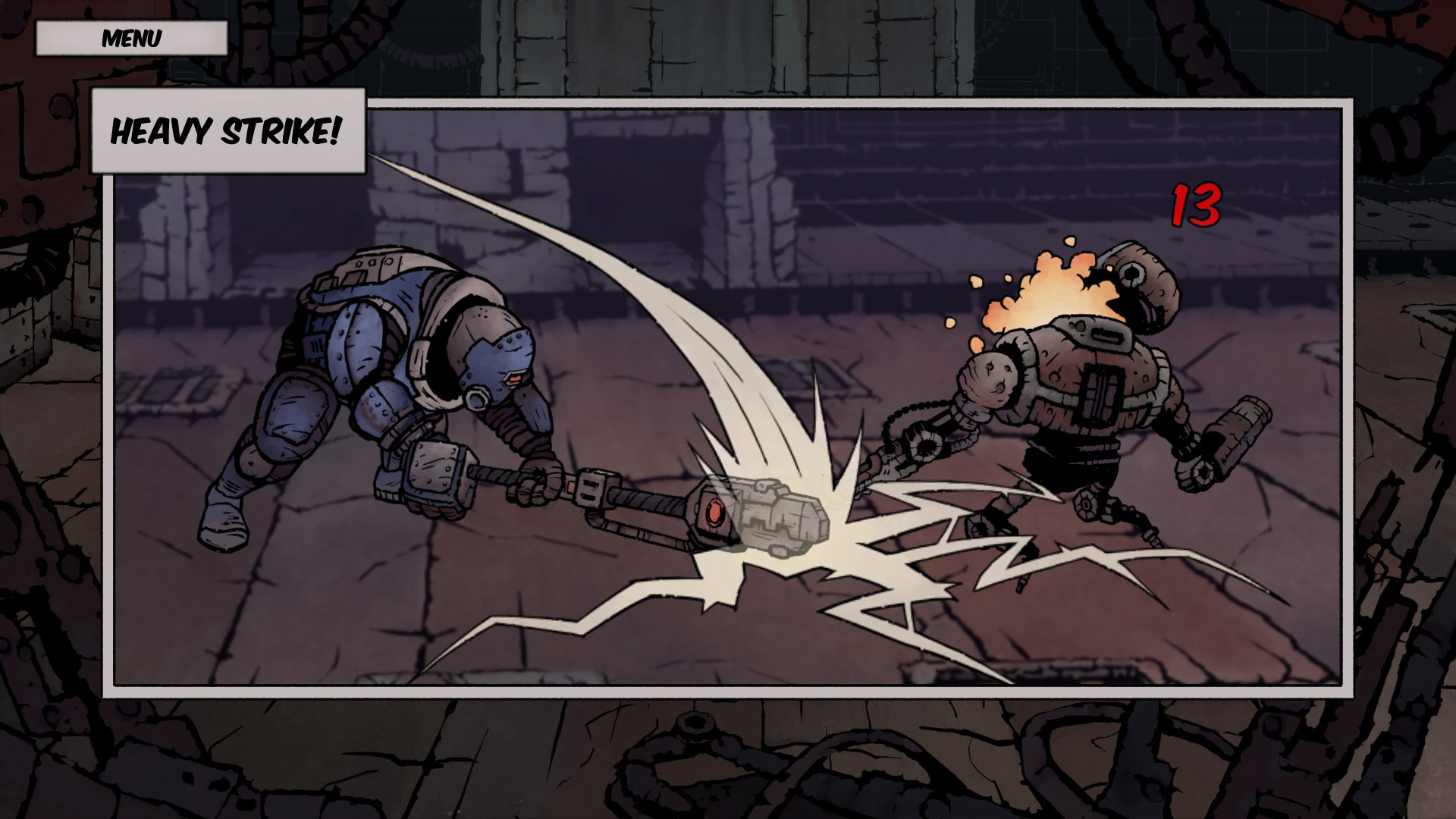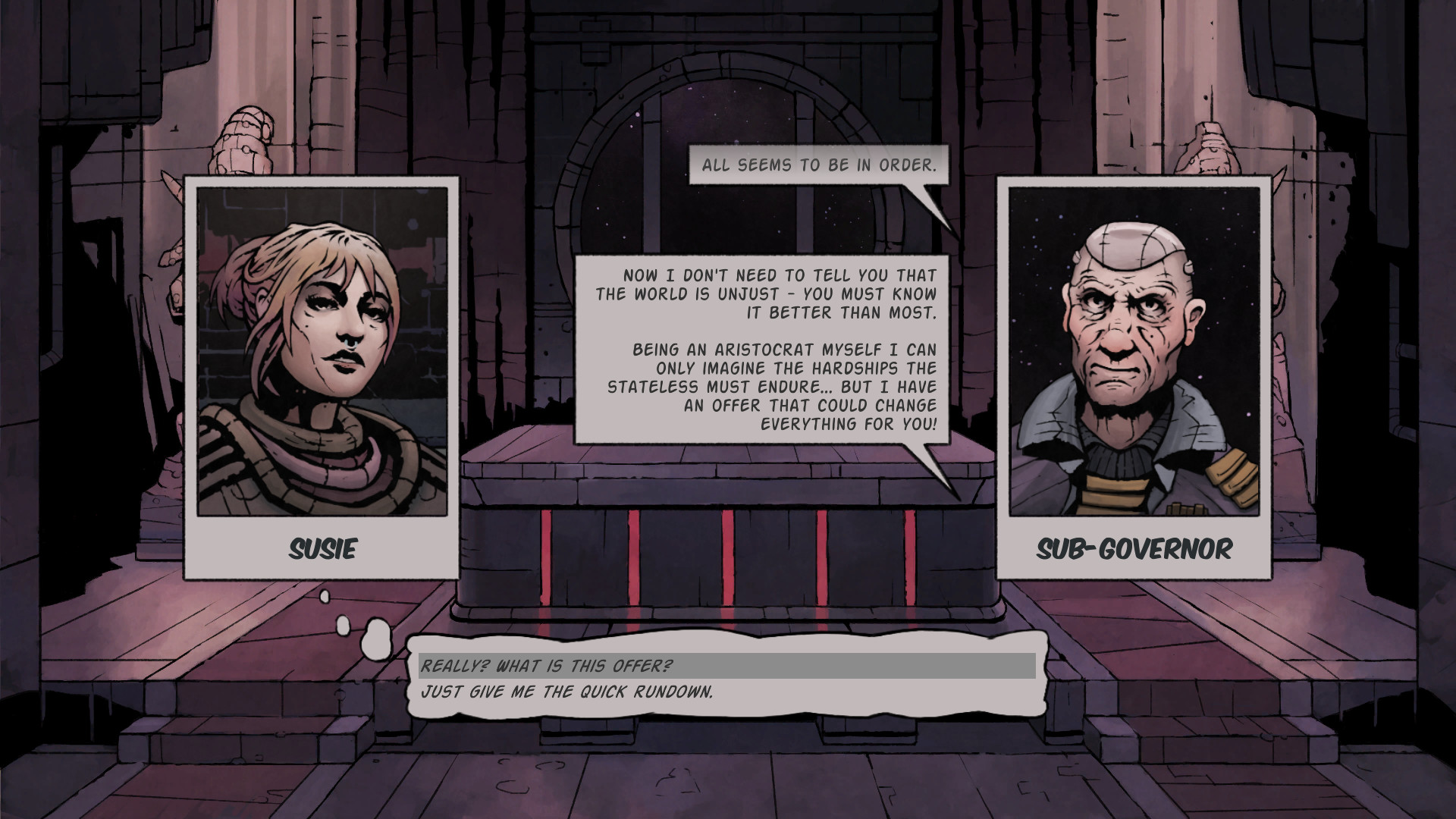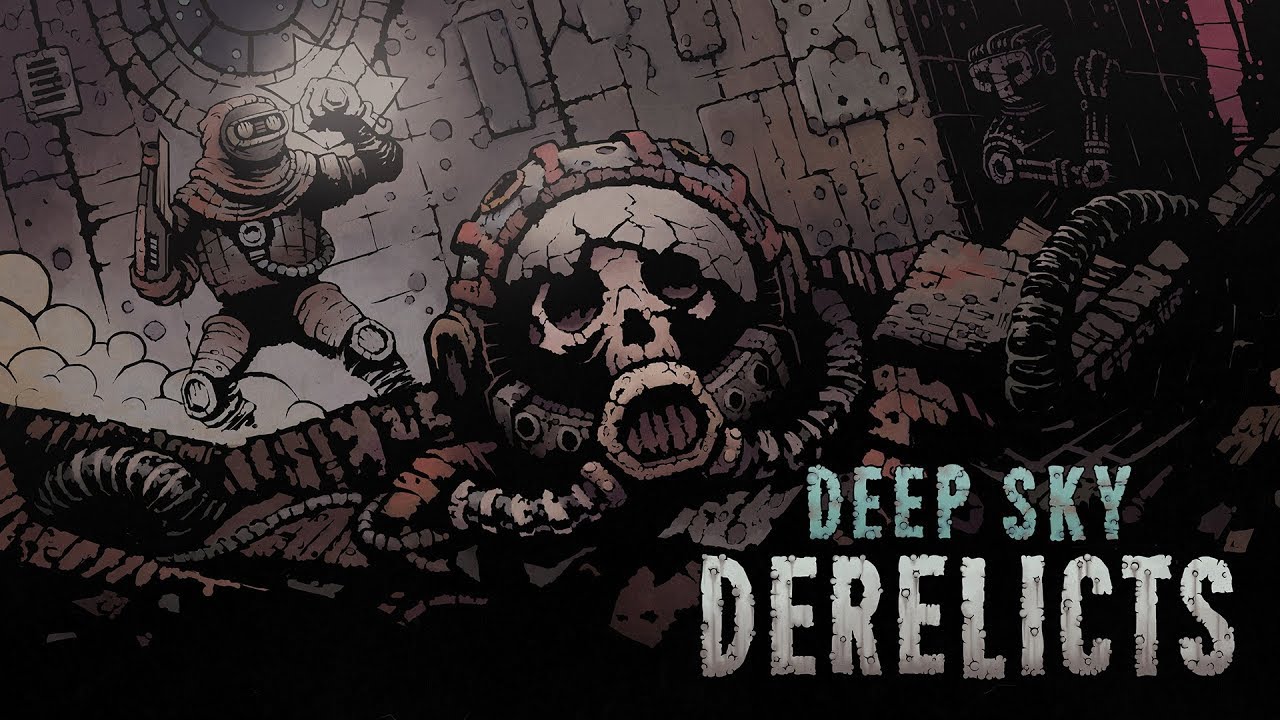It is a truth universally acknowledged that scavenging the floating wrecks of dilapidated space freighters is going to result in at least one conflict with space pirates. That’s just the rules. I didn’t make the rules. H.G Wells made the rules, then Asimov and Delany added a bunch more. I’m good with it though, because pirates are cool, and space is also cool. Deep Sky Derelicts, in case you’re wondering, is a very cool game; as striking as the vast reaches of space, and unfortunately, just as empty in its current state.
 Deep Sky Derelicts is a turn-based rogue-lite in which your 3 person crew of rough-hewn CosmoBastards™ trundle their way around hulking space detritus, hurting things until numbers pop out of their heads. You pick your team from a roster of RPG stalwarts, including BandageMan™, DamageLady™, and Captain Inspiration™, and navigate an increasingly difficult set of junked starships via a grid based menu. When you kill things, they drop things. When you collect the things, you can either use the things, or sell the things at the thing shop. Stop me if I’m failing to adequately convey how innovative this all is, but chances are, you’ve played Deep Sky Derelicts before, even if you haven’t.
Deep Sky Derelicts is a turn-based rogue-lite in which your 3 person crew of rough-hewn CosmoBastards™ trundle their way around hulking space detritus, hurting things until numbers pop out of their heads. You pick your team from a roster of RPG stalwarts, including BandageMan™, DamageLady™, and Captain Inspiration™, and navigate an increasingly difficult set of junked starships via a grid based menu. When you kill things, they drop things. When you collect the things, you can either use the things, or sell the things at the thing shop. Stop me if I’m failing to adequately convey how innovative this all is, but chances are, you’ve played Deep Sky Derelicts before, even if you haven’t.
Poor Man’s Sky
Deep Sky Derelicts absolutely oozes grungy sci-fi style from every rusted plasma burn, though; that’s undeniable. Each attack, buff and status effect is accompanied by its own unique animation, and each animation crackles with detail. Every screen is a graphic novel frame, and narrative sections are presented as speech bubble exchanges with branching dialogue choices. The premise of Deep Sky Derelicts – an underclass of scavengers promised full citizenship privileges upon completion of a dangerous mission – is intriguing; the dialogue itself feels stilted and unnatural. A soundtrack consisting of ambient lo-fi warbles and ominous trance is admittedly excellent, and goes a long way towards salvaging the atmosphere.

The greatest strengths of the titles Deep Sky Derelicts draws inspiration from was their ability to convey emergent narratives through mechanics. XCOM‘s permadeath and heavy reliance on RNG created stories of heroism and loss, and Darkest Dungeon‘s morale and status effects served up miniature tales of madness of woe. While Deep Sky Derelicts has some interesting interplay between character abilities, there’s no real hook that elevates it above the purely mechanical. If you’re a big fan of turn-based combat for its own sake, this might be for you. In its current iteration though, It’s difficult to recommend Deep Sky Derelicts until the clearly talented Snowhound Games build on a solid but threadbare foundation.



